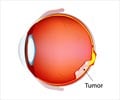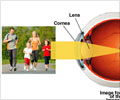Q: Who is a Candidate for LASIK Eye Surgery?
A: The following requirements are to be satisfied:
- Surgical correction is only undertaken in patients 21 years of age and above.
- A stable refractive error should have been attained; no change in refractive error should have occurred for at least one year.
- Non-surgical treatments have yielded no satisfactory results.
- Rule out corneal thinning disorders such as keratoconus.
- Age: Early 20s or younger
- People with hormonal fluctuations due to diseases like diabetes
- Pregnant or breast feeding mothers
- Those taking medications that cause fluctuations in vision
In addition to these, FDA also recommends detailed discussion with a doctor if the patient has history of eye diseases, injuries, or previous eye surgeries.
Q: What Are The Risks Associated With LASIK?
A: LASIK is not completely devoid of complications, like any other surgical procedure. Temporary and permanent side effects do occur. The following are the common problems that may walk in:
- Some patients develop glare, halos, and/or double vision that may affect night-time vision. Vision in fog may also be impaired.
- 20/20 vision may not always be achieved by a surgery. People who used reading glasses before surgery may have to continue using reading glasses. Some even may require contact lenses or glasses.
- Patients may develop dry eyes. This is because of the lack of tear production following LASIK. Artificial tears serve as a commonly used solution to this problem.
- Good results may not come if the patient required a very large refractory correction.
- Advantages gained after surgery may deplete after years. Farsighted patients who gained improved vision through LASIK may experience gradual loss of these gains across years. Vision may decrease with age.
- Long term safety and effectiveness of LASIK is not yet available as it is a relatively new technique that won approval for use as a surgery in 1998.
Q: What are the things that I should take care of before and after a laser vision correction surgery?
A: The answer to this question should ideally come out of a personal discussion with your doctor. Recommendations vary from person to person.
Q: On the day before surgery application of creams, lotions, makeup, and perfumes must be avoided.
A: LASIK usually takes less than 30 minutes. Symptoms like sensitivity to light, glare, starbursts or haloes around lights may occur for few days after the surgery. They gradually improve. Patient is advised to avoid strenuous works till recovery is achieved from these symptoms. Follow ups are scheduled by your doctor. The first visit usually is within 24-48 hours after the surgery.








